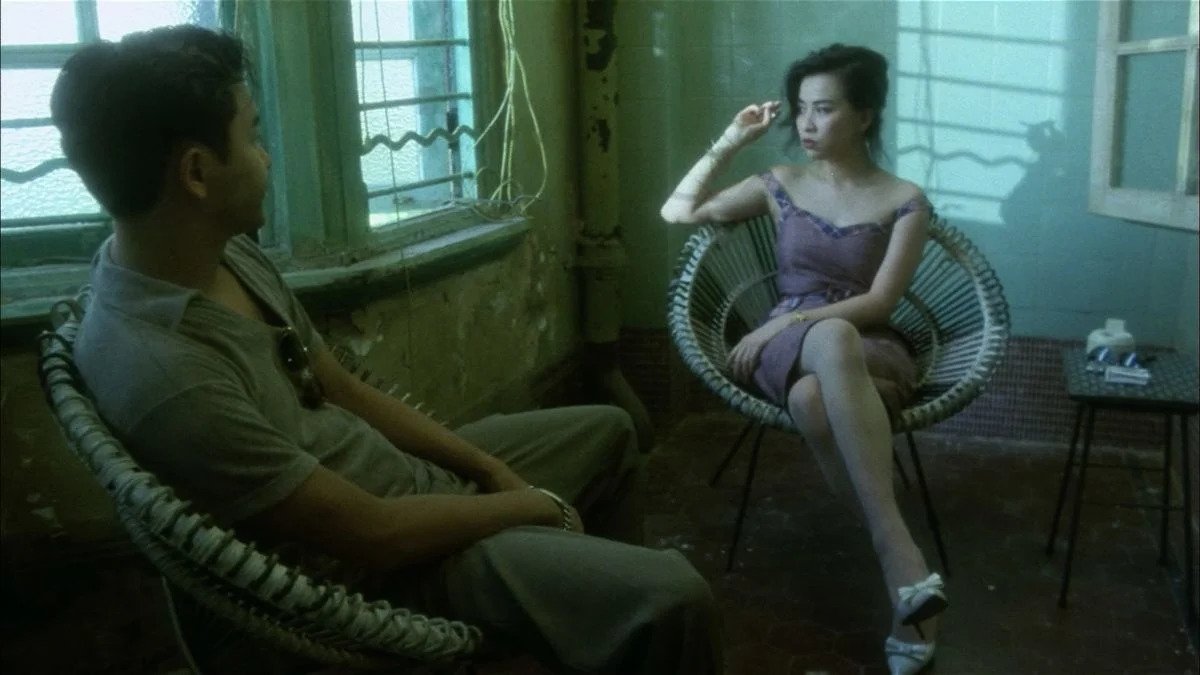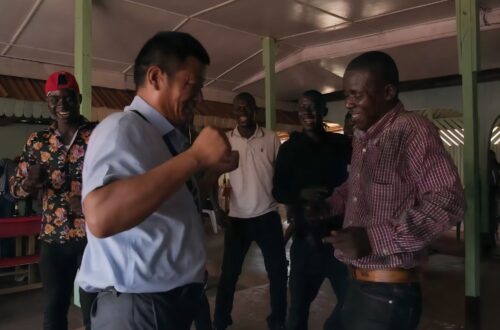‘A total failure’: Reexamining Wong Kar-wai’s breakthrough film ‘Days of Being Wild’
The first distinctively Wong Kar-wai film was 1990's "Days of Being Wild," where the Hong Kong director introduced his trademark style and themes, such as loose, elliptical narratives and an obsession with memory and troubled love. But it was a financial flop.

The year 1990 started as a pretty conventional one for the Hong Kong film industry. The trend of trigger-happy, honor-bound gangsters was alive and well, big studios comfortably pumped out sequels like A Chinese Ghost Story II (倩女幽魂 II:人间道 qiànnǚ yōuhún II: Rén jiàn dào) and God of Gamblers II (赌侠 dǔ xiá), and Stephen Chow (周星驰 Zhōu Xīngchí) seemed to be everywhere you looked. (At least, by my count, he appeared in 10 films that year.) Chow’s All for the Winner (赌圣 dǔ shèng), a spin-off from the God of Gamblers (赌神 dǔ shén) franchise, was the highest grossing film of the year in Hong Kong. Naturally, it had everything audiences craved: goofy humor, maniacally-edited action scenes, and a love story and happy ending wrapped into a nice, neat box.
Days of Being Wild (阿飞正传 Āfēi zhèng zhuàn), which hit theaters on December 15, could not have been more different than it contemporaries. In 2020, we’ve come to love Wong Kar-wai (王家卫 Wáng Jiāwèi) and his ambiguous, nonlinear films about time and love, but it’s important to remember that Wong was once a commercial filmmaker. In the 1980s, he wrote scripts for genre movies and TV shows before directing the triad story As Tears Go By (旺角卡门 wàng jiǎo kǎmén) in 1988. While a lot more interesting than the other gangster flicks riding off John Woo at the time, As Tears Go By was an accessible, straightforward film. It made a decent amount of money in Asia, won over critics, and didn’t leave anyone scratching their heads.
On paper, Days of Being Wild sounded like it would be a worthy crowd-pleaser, particularly because its cast consisted of the biggest stars in Hong Kong. Set in the early 1960s, the movie stars Leslie Cheung (张发宗 Zhāng Fāzōng) as Yuddy, a womanizing drifter trying to find the mother who gave him up for adoption. Maggie Cheung (张曼玉 Zhāng Mànyù) is Su Lizhen, Yuddy’s ex-girlfriend from Macao, and Carina Lau (刘嘉玲 Liú Jiālíng) plays a dancer named Lulu. Andy Lau (刘德华 Liú Déhuá) and Jacky Cheung (张学友 Zhāng Xuéyǒu) also appear as main characters, playing a cop-turned-sailor and Yuddy’s childhood friend, respectively. For Wong, the movie was an opportunity to be personal and experimental, something the average moviegoer probably wasn’t expecting.
Instead of a clear-cut story, audiences were presented with a narrative revolving around six different characters. There’s plenty of love, sure, but it’s shallow, unrequited, or fragmented. Save for a violent eruption at the end of the movie, the characters prefer walking and talking over shooting one another in slow-motion. The pacing is leisurely, the tropical-tinged score more relaxing than pulsating. And the story? Confusing. Repetitive. Some might even say absent. What was that final scene anyway? With Tony Leung Chiu-wai (梁朝伟 Liáng Cháowěi) messing around in his room, playing a gambler who just appeared out of nowhere? Early viewers were bewildered. Speaking in an interview, Wong reported that the movie “was a total failure; in Korea, the viewers even threw things at the screen.”
Of course, these are the qualities that make Days of Being Wild so fascinating. Commercially, however, the movie was indeed a failure. Wong had a hard time justifying his larger budget, especially when his sophomore effort made nearly HK$2,000,000 ($258,000) less than As Tears Go By. This financial setback made it hard for Wong to get work, and his extravagantly-funded Ashes of Time (东邪西毒 dōng xié xī dú) (1994) would be an even bigger bomb. On artistic merit though, Days of Being Wild was a major breakthrough. As many critics have remarked, it’s the first distinctively Wong Kar-wai film. It was the beginning of his collaboration with cinematographer Christopher Doyle, as well as the first dip into his trademark style and themes, such as loose, elliptical narratives and an obsession with memory and troubled love.
It might have been a disappointment to some viewers, but some domestic critics were more forgiving. At the 10th Hong Kong Film Awards, held in April 1991, the movie won awards in five categories, including Best Director and Best Film. Despite the warm critical reception, Wong had to cancel a sequel he envisioned from the outset. Originally, Days of Being Wild was going to be a two-part story, its enigmatic ending a tease for the next movie. In the Mood for Love (花样年华 huāyàng niánhuá) is said to be a spiritual sequel, reuniting Leung and Cheung, the latter playing another character with the name Su Lizhen. Leung’s character Chow Mo-wan is also the same gambler from the last scene of Days, and Chow meets Carina Lau’s Lulu in 2046, a continuation of Love.
This might not be the last we see of the Days world, either. In the past year, Wong has hinted that his next project, Blossoms, will be another link to Love. Confusingly, Wong said that it would be the “third part” of the series, even though Days, Love, and 2046 have previously been described as a loose trilogy. How any of these movies might play into Blossoms is unclear, but the project has since morphed into both a film and a TV series called Blossoms Shanghai. An adaptation of a Jīn Yǔchéng 金宇澄 novel, Blossoms chronicles how the lives of a trio of Shanghainese men change between the turbulent ’60s of their youth and the booming ’90s of their adulthood.
Whatever the fate of the movie’s place in Wong’s shifting timeline, Days of Being Wild will always remain one of the auteur’s most special films. At its release in 1990, it was a breath of fresh air in an otherwise unextraordinary year. Internationally, it took longer for Wong’s second feature to be appreciated, and the movie wouldn’t be distributed in the U.S. until 2004. In the three decades since it first amazed and confounded audiences, however, Wong’s thought-provoking films have spread far and wide, influencing American filmmakers like Barry Jenkins and Sofia Coppola, as well as other talents around the world.
At the time of this writing, Days of Being Wild isn’t available for streaming in the United States. Your best bet for watching it would be to get your hands on Kino Lorber’s 2004 DVD release. Given its upcoming 4K restoration next month, we should see wider availability in the near future.






